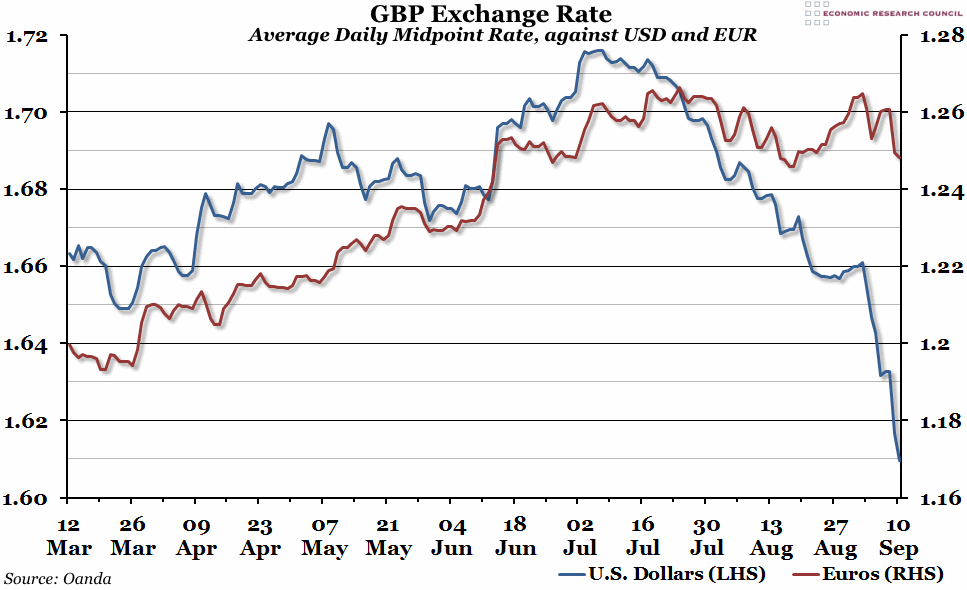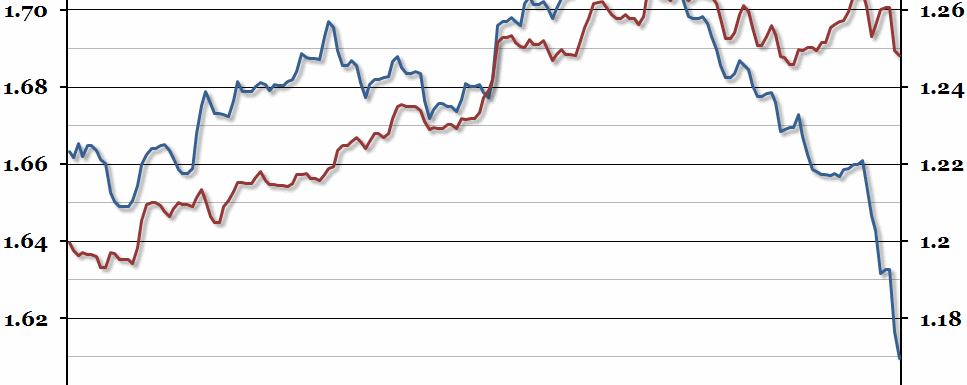
Summary
With the Scottish independence referendum due to take place next week, a poll released a few days ago suggesting that the “Yes” vote might actually win sparked panic, causing a fall in the value of the pound.
What does the chart show?
The chart shows the average daily midpoint price (the price halfway between the “buy” and “sell” prices) of the British Pound (GBP) against the U.S. Dollar in blue (measured against the left hand axis) and the Euro in red (measured against the right hand axis). This is the amount of dollars or euros that can be bought for £1.
Why is the chart interesting?
When the latest YouGov poll suggested that the “Yes” and “No” votes were roughly equal, it caused both political and financial panic. All previous polls had shown that the “No” campaign had a solid lead, and this was the first to indicate that the “Yes” supporters might win the referendum. The effect on the pound has been spoken about a great deal in the media this week, and you can see from this week’s graph that the value of the pound has fallen sharply in the last few days, especially against the dollar. However, this should be put in the context of a pound that has been losing value against the dollar since the beginning of July. The reaction against the euro is probably more telling, with a slightly more modest drop from 1.26 to 1.25. Of course, if the outcome of next week’s referendum is the break up of the UK, then the reaction from the financial markets will almost certainly be more severe.

